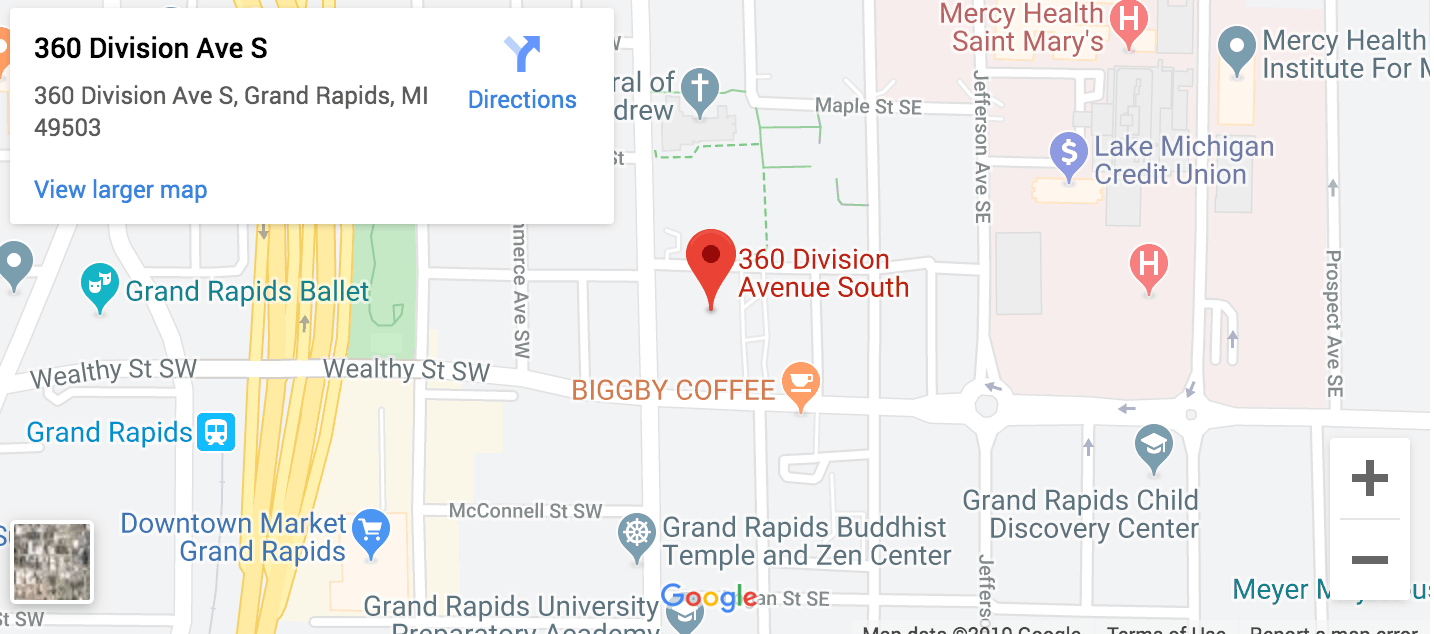What is Seminary Like?
A man who thinks God might be calling him to be a priest should go to the seminary; it is the best place to truly discern God’s will. But even a decision to go to the seminary is not a final decision to become a priest. For many men, they cannot answer the question, “am I called” without the help of seminary formation.
The aim of the seminary is the formation of body, mind, and soul. To this end, seminarians take classes in Catholic theology, Sacred Scripture, Church history, pastoral counseling, and other subjects. Most importantly, the seminarian is expected to pray. He is taught how to pray liturgically and privately. In short, he is taught how to accomplish his life’s work: to become like Jesus. There are also opportunities to participate in sports, recreation, music, and other extracurricular activities.
Seminarian Andre Klaes
Joy, which flows from the priestly heart of Christ, envelopes and saturates SJV. Priestly formation, seeks to prepare the heart of a man to respond generously to the call of Christ with peace and confidence. I can say with conviction that the seminary is the best place for a young man to discern the will of God.
A year in the life of a seminarian at Mundelein
Life at Saint John Vianney Seminary
The Eucharist
Seminary life is centered around daily celebration of the Eucharist. Bishop Walkowiak encourages seminarians and priests to “be with Jesus” everyday. This being with Jesus daily, strengthens the seminarian’s friendship with the Lord; while daily reception of the Eucharist nourishes and enables seminarians to love as Christ loves in our world. Both seminaries encourage prayer in front of the Blessed Sacrament. The Eucharist is necessary for a mature relationship with Christ and fostering future priests who will be missionary disciples.
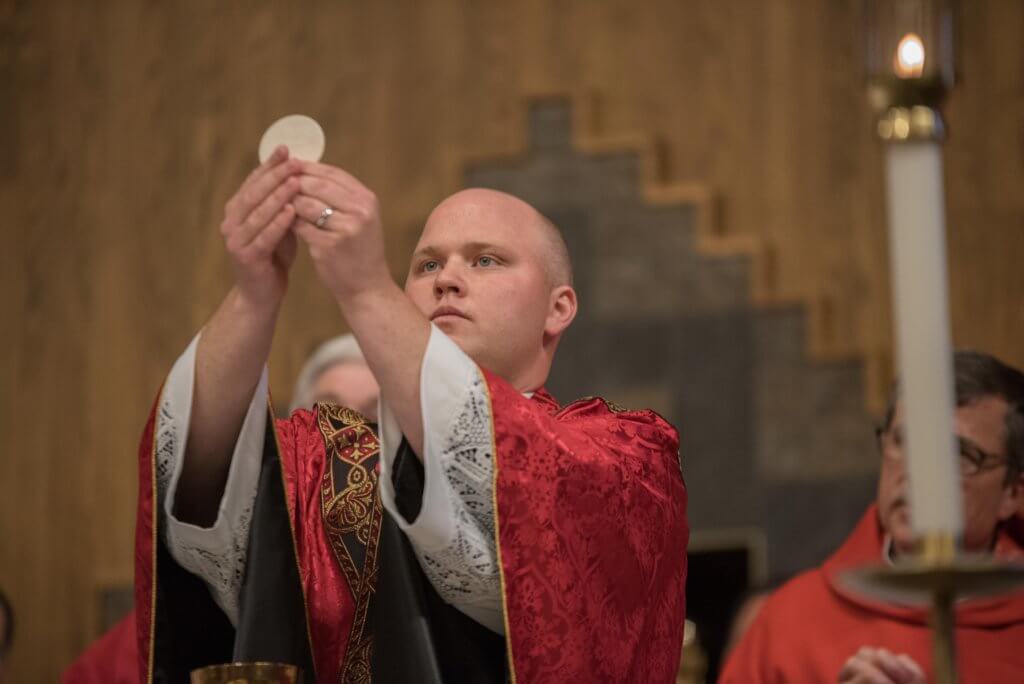
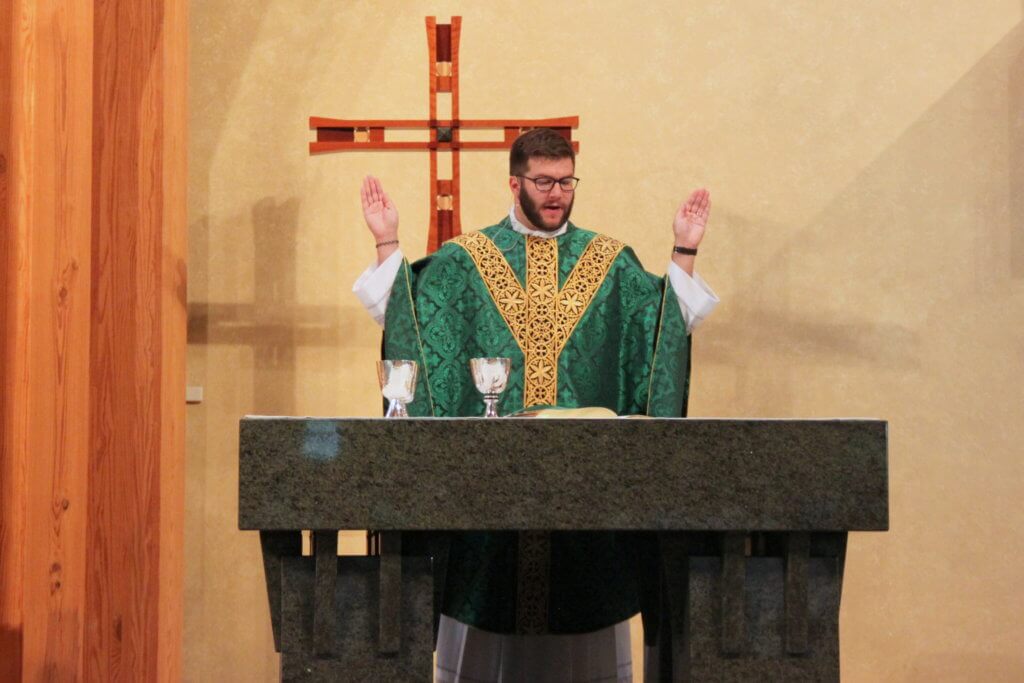
The Liturgy of the Hours
“Priests and seminarians are called to be men of prayer. One of the promises made at diaconate ordination, and renewed at Presbyteral ordination, is to pray unceasingly, particularly through the recitation of the Liturgy of the Hours, the public prayer of the Church. While it isn’t always convenient, or easy, the daily praying of the public prayer of the Church has been an important foundation of my life and ministry as a priest. The Liturgy of the Hours allows me to enter a prayer constantly being offered to God the Father, in Jesus Christ, by the power of the Holy Spirit. Praying with the Church becomes for the priest a source of grace, help, stability and strength in the midst of challenging aspects of ministry. This act of worship is being offered around the world, at all times. It is a true blessing, and a privilege, to daily offer the Liturgy of the Hours!” ~ Fr. Colin Mulhall, pastoral administrator, Holy Redeemer parish.
Education
Immediately following high school graduation, a seminarian will first enroll at Saint John Vianney College Seminary at the University of Saint Thomas. These seminarians obtain a bachelors degree in philosophy and are able to major/minor in other areas of interests (e.g. math, business, psychology etc.) Upon completion of their bachelors degree, our seminarians move on to Mundelein Seminary to complete a masters degree and finish their seminary education. This route to the priesthood takes eight years (four years of college and four years at Mundelein).
Men who enroll in seminary formation after college, or after working in another career, will attend Mundelein Graduate Seminary. Here, our seminarians obtain a masters in divinity. Seminarians also have the opportunity to graduate with a baccalaureate in sacred theology; which is a research degree that enables them for further studies after ordination. This route to the priesthood normally takes six years.
Seminarian Noah Thelen
I have an insatiable curiosity and love of learning, so I have really enjoyed our classes. The professors at Mundelein are very available and a great resource. I relish conversations about liturgy, biblical studies, ecclesiology, Christology and spiritual theology, which can be as informal as a lunch conversation.
Is seminary affordable?
Every vocation is a gift from God. To that end, our diocese has a policy to address such financial concerns in order to protect the importance and dignity of every vocation that God gives to the Church. No one is turned away from studying for the priesthood for lack of financial resources. If finances are of concern to you, please speak with Fr. Stephen.
What if I struggle in school, is all the education necessary?
There is no minimum GPA, SAT, or ACT score requirement for entrance. However, a potential seminarian does need to show that he has the capacity to study and participate in a classroom environment. Priests are called to teach and proclaim the good news of Christ. While being an “A” student is not required, one’s best effort is expected. One who goes to the seminary must have the ability to pass the courses the seminary requires in order to serve the Church well. It is very important for a priest to have a well-balanced liberal arts education as well as a deep grasp of theology and the spiritual life.
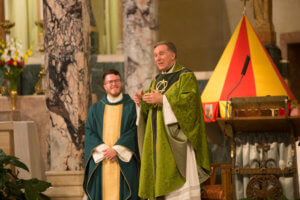
The basic principle of human formation is to be found in Pastores dabo vobis, no. 43: “the human personality of the priest is to be a bridge and not an obstacle for others in their meeting with Jesus Christ the Redeemer of the human race. As the humanity of the Word made flesh was the instrumentum salutis, so the humanity of the priest is instrumental in mediating the redemptive gifts of Christ to people today.” As Pastores dabo vobis also emphasizes, human formation is the “necessary foundation” of priestly formation.
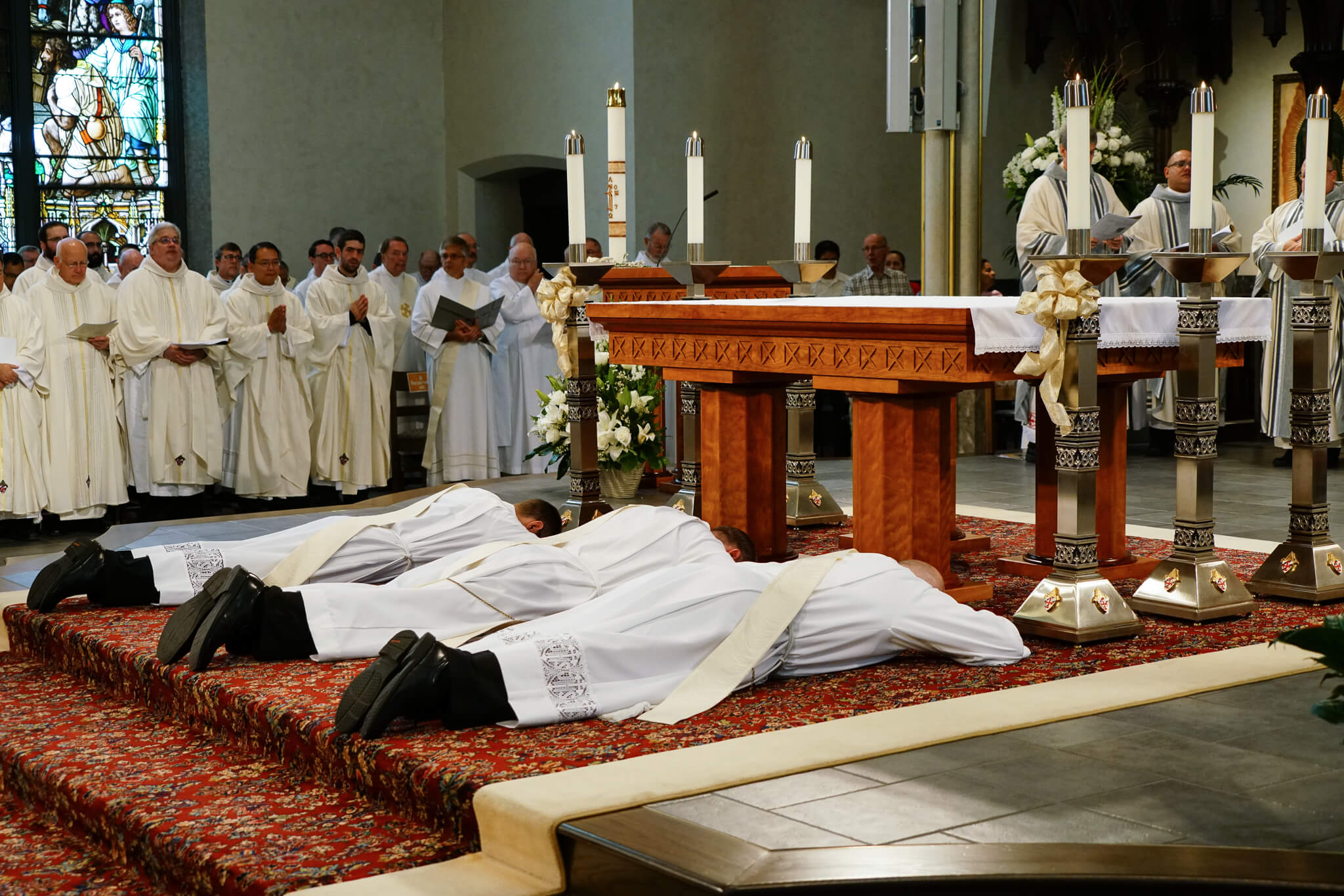
Spiritual formation is directed at nourishing and sustaining communion with God and with our brothers and sisters, in the friendship of Jesus the Good Shepherd, and with an attitude of docility to the Holy Spirit. This intimate relationship forms the heart of the seminarian, with generous and sacrificial love that marks the beginning of pastoral charity. The heart of spiritual formation is personal union with Christ, which is born of, and nourished in, prayer. Prayer, listening to the Word, devout participation in the sacraments, in the liturgy and in community life, the seminarian fortifies his personal union with God after the example of Christ, who had, as His program of life, to do the will of His Father.
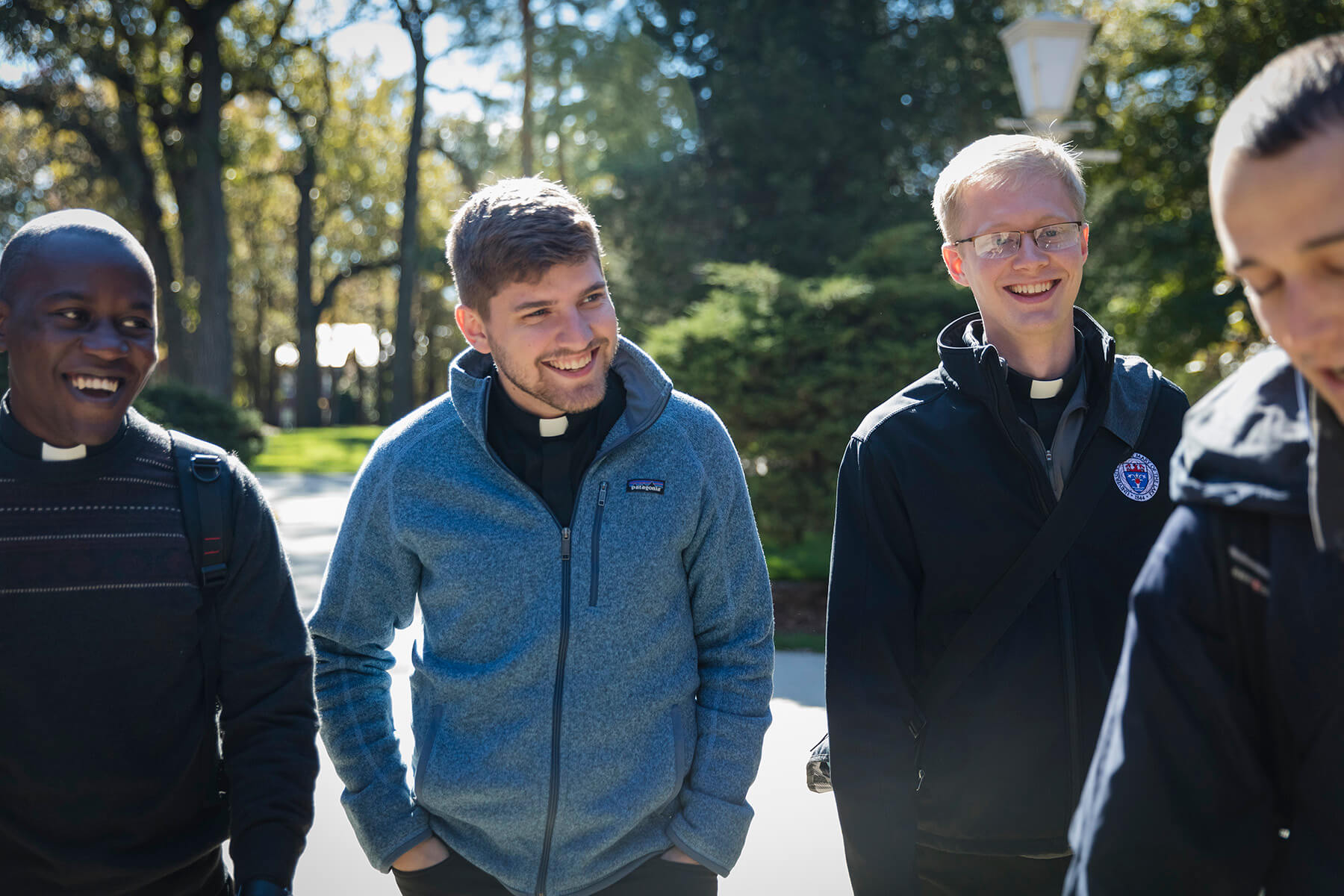
In the College Seminary, students follow a double course of intellectual formation. They first pursue the liberal arts, through which they acquire a sense of the great human questions contained in the arts and sciences. They synthesize and organize their study of the liberal arts through the study of philosophy, which also serves as a preparation for the study of theology. This twofold college program also initiates students to the study of theology that will, of course, be pursued in greater depth in the theologate.
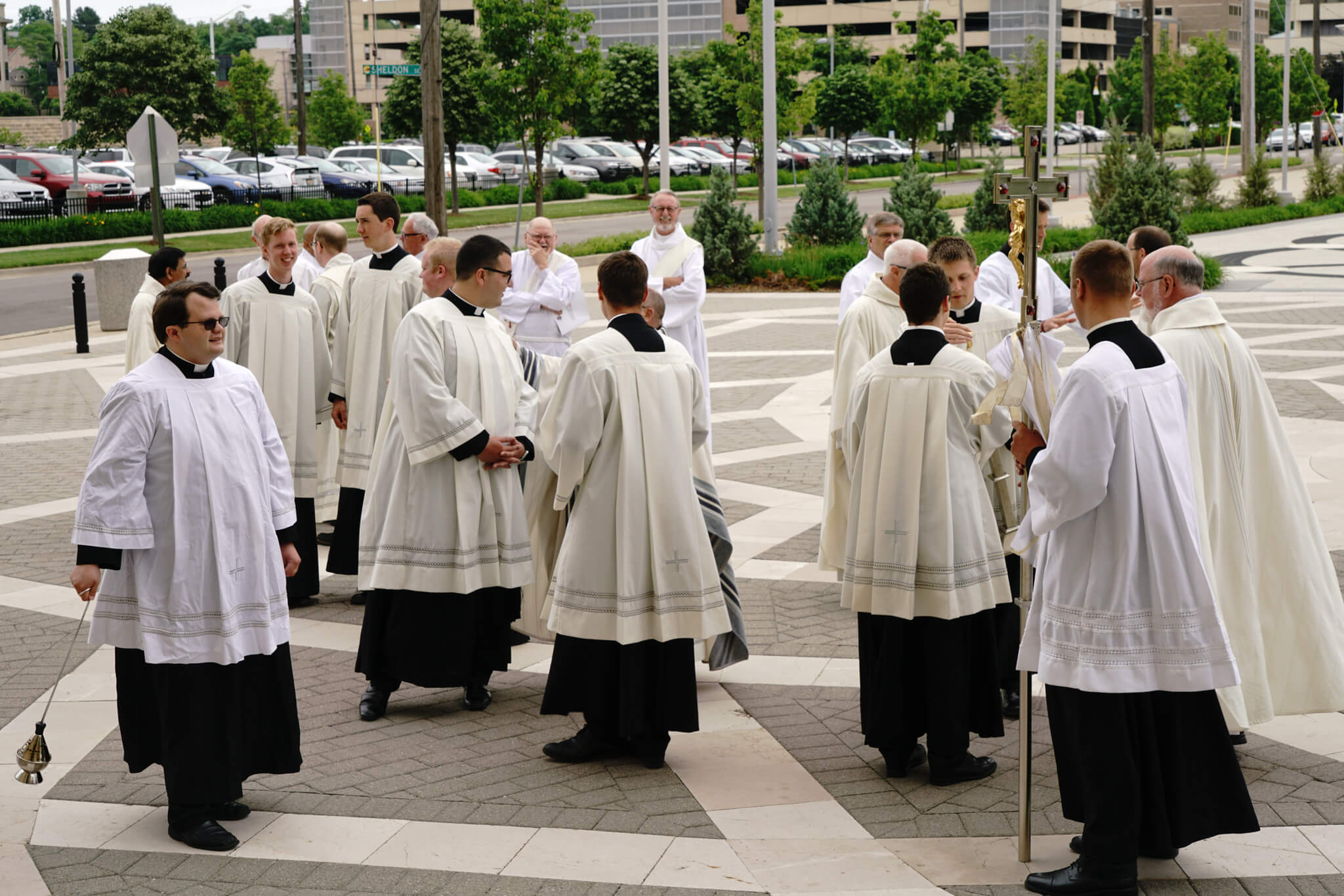
“The whole formation imparted to candidates for the priesthood aims at preparing them to enter into communion with the charity of Christ the Good Shepherd. Hence, their formation in its different aspects must have a fundamentally pastoral character” (Pastores dabo vobis, no. 57). In virtue of the grace of Holy Orders, a priest stands and acts in the community in the name and person of Jesus Christ. This sacramental character needs to be completed by the personal and pastoral formation of the priest, who appropriates “the mind of Christ”, effectively communicating the mysteries of faith through his human personality as a bridge, through his personal witness of faith rooted in his spiritual life, and through his knowledge of faith. These elements of formation converge in pastoral formation.
